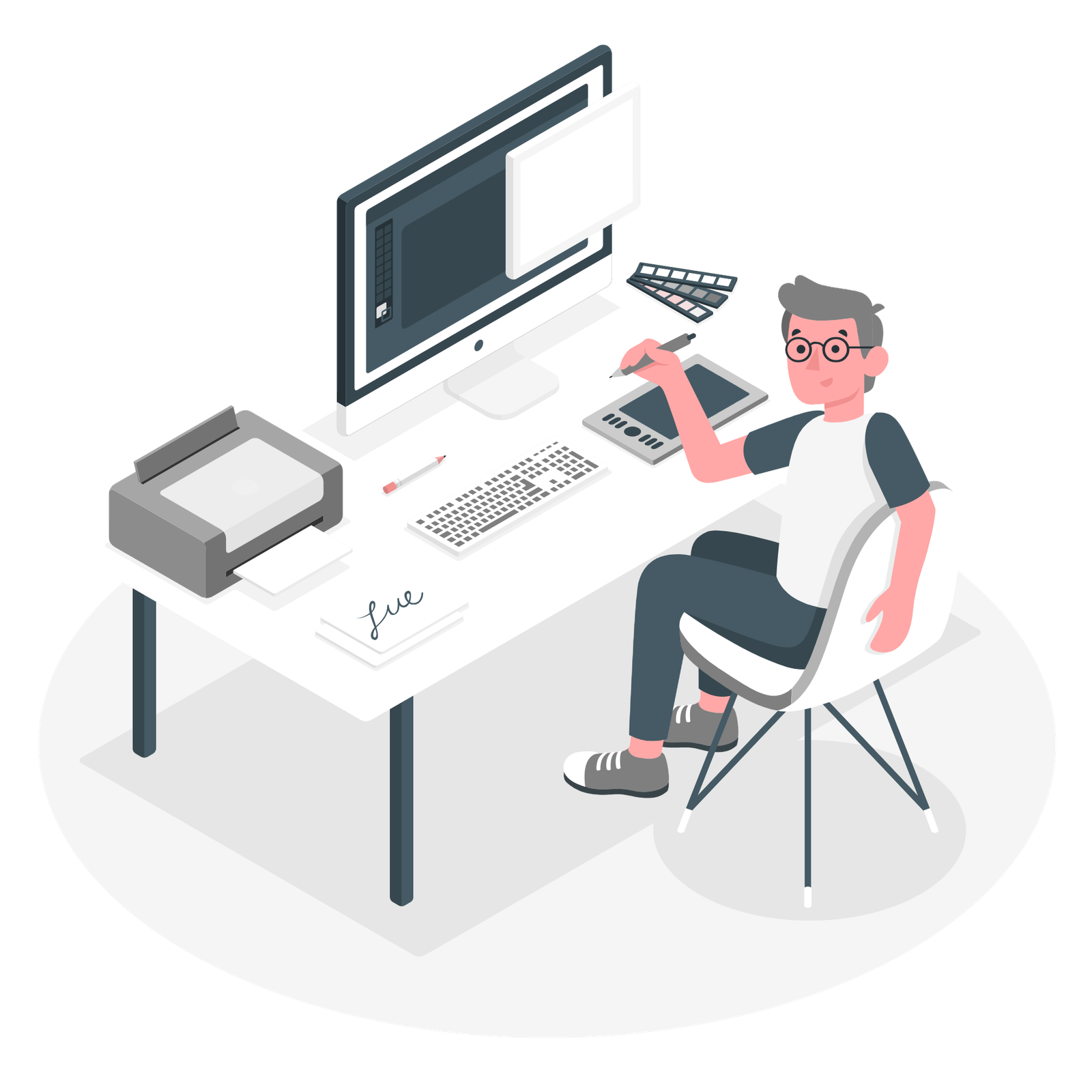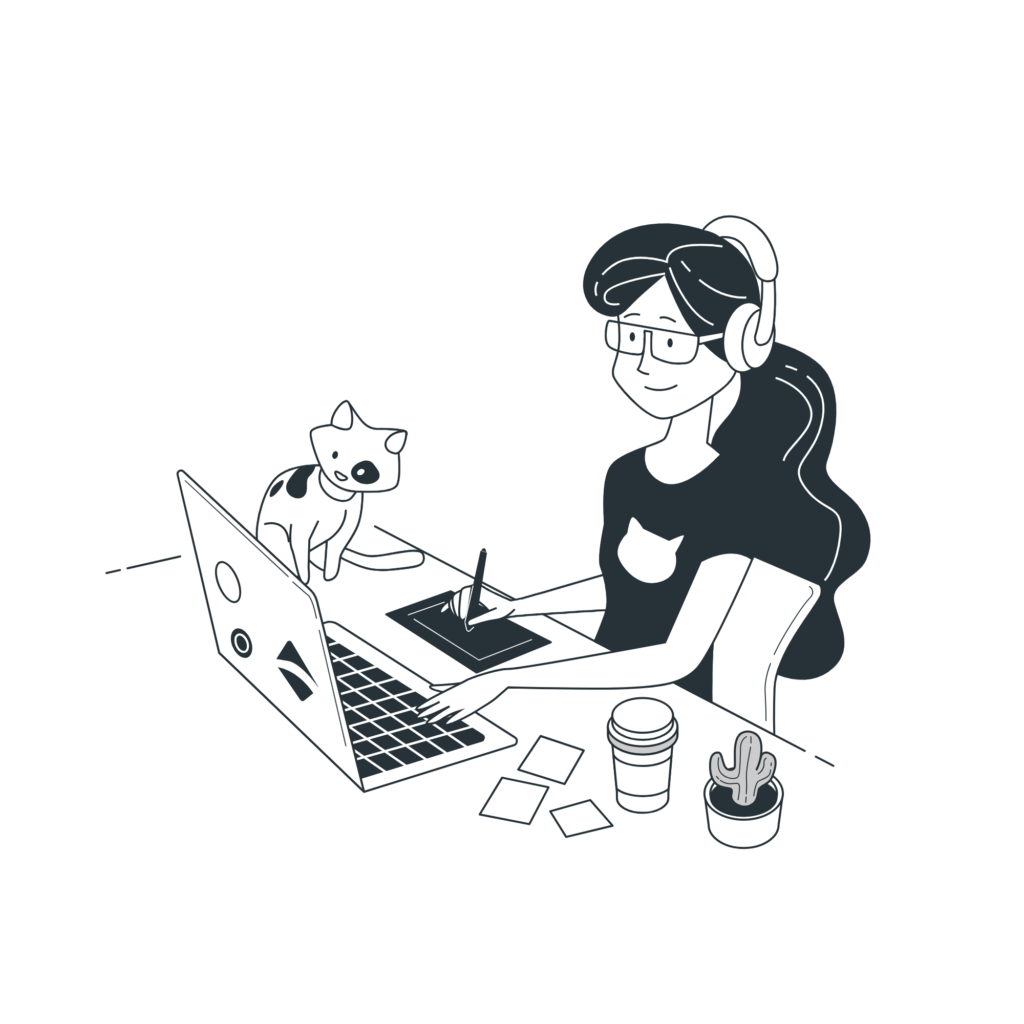At the end of this e-module, I will be able to:
-
Define the term of self-care
-
Indicate which areas of life and health are affected by self-care
-
Indicate the health benefits of self-care activities
-
List self-care practices that can be used in the workplace
Time for completion
Who is this course for?
"Self-care is not a waste of time. Self-care makes your use of time more sustainable.
Module 4: Professional self-care in the workplace
Self-care plays a particularly important role in looking after one’s own mental health, including dealing with symptoms of anxiety.
Self-care is defined as “a multidimensional, multifaceted process of purposeful engagement in strategies that promote healthy functioning and enhance well-being” (Dorociak et al., 2017).
In a broader sense, WHO (World Health Organisation ) understands self-care as “the ability of individuals, families and communities to promote and maintain their own health, prevent disease, and to cope with illness – with or without the support of a health or care worker. Self-care actions include practices, habits, and lifestyle choices.” (WHO, 2024).

We can also say that self-care is about taking care of ourselves to ensure that our physical and emotional needs are met. Self-care is the conscious action people take to look after their:
- physical
- mental
- spiritual
- and emotional health.
Self-care is essential to building resilience to the stressors that occur in our lives, especially those beyond our control (Scott, 2024).
Self-care activities are most often associated with free time after work.
However, this approach is changing, and we are now seeing the benefits of weaving self-care activities throughout the day, including during work time, rather than leaving it for later. This integration can help to ensure good mental and physical health and help to manage stress and build resilience.
Therefore, it is worth learning practical tips on how to undertake self-care activities while at work (Calm Business, 2024).
Reflection
Click to view
How can we take care of ourselves in the workplace as HEI professionals?
What self-care actions can we make in the workplace for ourselves and for our colleagues?
Mentoring for Positive Mental Health – managing anxiety in Higher Education Institutions
Identify and introduce your chosen model or approach
Practices for creating a culture of self-care in the workplace (based on: Calm Business, 2024):

-
Take care of your work-life balance. Set times and days when you are not working and do not answer work calls or emails.
-
Also respect the work-life balance of others. If it is not absolutely necessary, don't call colleagues outside working hours.
-
Take regular breaks during work. Don't run business errands during breaks, such as lunch.
-
Maintain an assertive attitude in the workplace. Set your own boundaries and respect other people's boundaries.
-
Follow the principles of assertive communication and constructive feedback. Be respectful in your communication with others.
-
Offer walking or standing meetings, rather than sitting meetings, which can promote your physical health.
- Do regular relaxation and breathing exercises, practice yoga, meditation, etc..
- Practice gratitude by reminding yourself every day what you are grateful for.
- Find time for your hobbies and interests.
- Play puzzle games, solve crosswords, participate in creative activities or try other brain teasers.
- Do not neglect your social contacts: meet up regularly with friends and family members, get involved in local groups.
- Develop your emotional intelligence and empathy. Apply the most effective stress and anxiety management strategies for you.
- Seek help from a professional as needed.
- Perform physical exercise appropriate to your state of health and your needs.
- Eat regularly and have a well-balanced diet.
- Engage in relaxing practices to cope with stress.
- Get enough sleep.
- Get regular medical care, follow your doctor’s recommendations and carry out preventive examinations.
Benefits of this Mentoring Model for the chosen Topic
Specific forms of self-care have been linked to different health and wellness benefits, including living a healthier life. The use of effective self-care routines can lead to several health benefits, such as (Scott, 2024):
- reducing anxiety and depression
- reducing stress and improving resilience
- improving happiness
- increasing energy
- reducing burnout
- stronger interpersonal relationships
Practical Advice for using this model (Tips and Hints)
- There are many practices of self-care. Remember that not all of them necessarily suit all people. Choose the ones that are best for you.
- In addition to practicing self-care yourself, check what options your employer offers. You can also ask about the possibility of implementing other solutions, such as stress management training for all employees.
- Also encourage your colleagues to practice self-care. Share good practices with them.
Key Takeaway
Remember, that to support your students to take care of their own mental health, you must take care of yourself first and foremost. So don’t neglect your own well-being and practice self-care regularly.
Real-life Scenario
Anne, 35, has worked at the university as an assistant professor for eight years. She is a philologist and did her PhD in literature in the humanities. She enjoys carrying out research and loves teaching students. So far, she has derived a lot of satisfaction from her work.
However, in recent months Anne has been feeling a high level of stress and has been overloaded with too much work. She still enjoys her work but feels that she is working non-stop and constantly taking on new responsibilities. This situation is becoming increasingly difficult for her.
What can Anne do in this situation?
To start with, Anne can identify her priorities. She can choose the tasks and projects that are most important to her and focus her attention on them.
She can also consider which projects she can postpone or ask for help to complete.
Anne should also carve out time for rest and relaxation outside of work. She can set specific days and times when she does not work and rests.
Anne can also implement daily self-care routines: relaxation techniques, exercise, adequate sleep, balanced meals, etc.
If the situation does not improve Anne should seek professional psychological support. She can first check whether such support is offered by her employer - the university.
Call to Action
In the area of self-care in the workplace, social support is extremely important, as well as the support of the higher education institution – your employer.
Therefore, as a first step, we suggest that you research on how your HEI cares for employees in the field of mental health. Are there support groups organised? Do you have access to professional psychological support? Is there training on, for example, stress management, time management or assertive communication?
If this kind of service is unavailable at your university, ask your colleagues if they will implement it. This could be the first step towards implementing solutions that contribute to improving your mental health.
Additional and Further Information
Title: Recap: A Verywell Mind Webinar – Mental Health in the Workplace
Link: https://www.verywellmind.com/recap-verywell-mind-webinar-mental-health-in-the-workplace-5322719
Why its recommended: Amy Morin, LCSW spoke to a panel of experts about strategies to support mental health in the workplace at Verywell Mind Webinar: Mental Health in the Workplace.
Title: 7 Tips For Self-Care During A Busy Work Week
Link: https://mywellbeing.com/workplace-wellbeing/7-tips-for-self-care-during-a-busy-work-week
Why its recommended: valuable tips for maintaining self-care during a busy work week
Title: Well-being in higher education
Link: https://www.timeshighereducation.com/campus/collections/wellbeing-higher-education
Why its recommended: Resources for academics and university staff
References
- Bottaro A. (2023). What Is Self-Care and Why Is It Important? 4 Ways to Practice Self-Care. https://www.verywellhealth.com/what-is-self-care-5212781#citation-1
- Calm Business (2024). Creating a Culture of Self-Care in the Workplace. https://business.calm.com/resources/blog/creating-a-culture-of-self-care-in-the-workplace/
- Dorociak KE, Rupert PA, Bryant FB, Zahniser E. (2017). Development of a self-care assessment for psychologists. Journal of Counseling Psychology. 64(3):325-334. doi:10.1037/cou0000206https://doi.org/10.1037/cou0000206
- Scott E. (2024). 5 Types of Self-Care for Every Area of Your Life. How are you caring for yourself today? https://www.verywellmind.com/self-care-strategies-overall-stress-reduction-3144729
- World Health Organization (2024). Self-care for health and well-being. https://www.who.int/news-room/fact-sheets/detail/self-care-health-interventions


Funded by the European Union. Views and opinions expressed are however those of the author(s) only and do not necessarily reflect those of the European Union or the European Education and Culture Executive Agency (EACEA). Neither the European Union nor EACEA can be held responsible for them. Project Number – 2022-1-PL01-KA220-HED-000087038.

